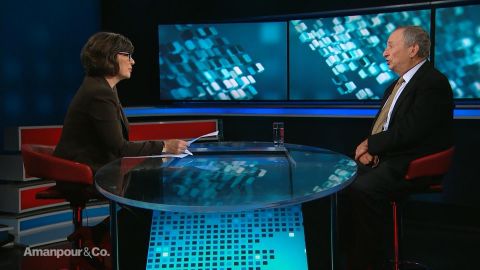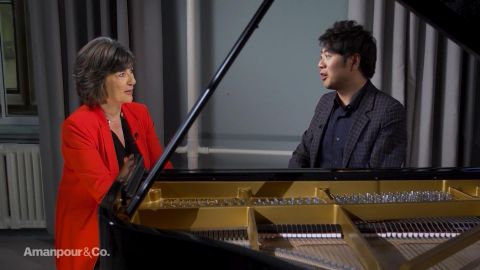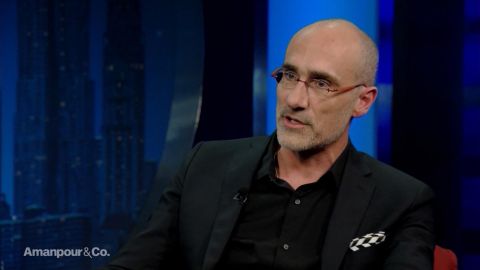Read Transcript EXPAND
CHRISTIANE AMANPOUR: So, let’s just drill down a little bit because we’ve seen what the allegations of the criminality are but you just talked about legally skewed. I mean, the legal inequality, inequity and rigging of the system and you’ve just laid it out, rich and powerful people can donate, for instance, Jared Kushner’s father who donated $2.5 million to Harvard before his son got in there. And I’m just using that because it’s a famous name.
LAWRENCE SUMMERS, FORMER PRESIDENT OF HARVARD UNIVERSITY: I obviously did comment to that particular admission case.
AMANPOUR: No, I know. I know.
SUMMERS: And I don’t know what the —
AMANPOUR: I know. But you —
SUMMERS: And I don’t know what the facts of that case are. Look —
AMANPOUR: Not that case necessarily.
SUMMERS: — you have a very difficult — in fairness, Christiane, you have a difficult problem, you want universities to admit the best students. Often the best students are the students who learned the most. Well, there are a lot of things parents can do to help their kids learn the most. We probably don’t want to say that that can’t be any part of admissions. We have all kinds of arrange — all kinds of arrangements but I do think we’re — there does need to be a lot of soul searching about the role of privilege. I mean, that’s true with respect to admissions to top schools, that’s true, Christiane, with respect to who becomes an intern at CNN.
AMANPOUR: Well, not necessarily but certainly in many places.
SUMMERS: Certainly, in many different —
AMANPOUR: Rich people can afford to use their connections and give their children internships rather than sending them out to work.
SUMMERS: So, I think — exactly. That’s what I mean. That’s what I say. Interns, I don’t know the details of CNN. But interns of media organizations, interns in many different things, first jobs. I think it’s something that we all do need to reflect a great deal on.
AMANPOUR: You’re absolutely right. But let’s — since we’re talking about this college stuff and you’re so uniquely placed to talk about it, first of all, interns here are paid. That’s the law. It have to be paid.
SUMMERS: Even if they’re paid —
AMANPOUR: Yes.
SUMMERS: Even if they’re paid, I would —
AMANPOUR: So, here’s what —
SUMMERS: — be surprised if it were not the case at many media organizations.
AMANPOUR: Right. So, you’re right. Many, many rich and famous —
SUMMERS: That people call and ask if their children —
AMANPOUR: Exactly.
SUMMERS: — can get —
AMANPOUR: I’m sure that is true.
SUMMERS: — those internships. And if they’re paid, that doesn’t make it better.
AMANPOUR: Right. You’re true. Here’s what a friend told me anecdotally. That she asked one of New York’s most expensive college advisers, off the record, what the price tag might be to get a daughter into Harvard. He said without missing a beat, “$5 million, but I might go higher if I wanted to be sure.”
SUMMERS: That’s just not true.
AMANPOUR: But this is what somebody said.
SUMMERS: Lots of people say lots of things about lots of things. That’s not true. I mean, am I going to deny that just as doctors are disproportionately — the children of doctors that those who have been associated with Harvard for several generations that that’s something our admissions office notices, of course it — of course our admissions office does.
About This Episode EXPAND
Christiane speaks with Lang Lang, the concert pianist and international phenomenon, and Larry Summers, former President of Harvard University and former Treasury Secretary, who talks Brexit and the recent college admissions scandal plaguing Ivy Leagues; Michel Martin interviews Arthur Brooks, author of “Love Your Enemies,” who argues America’s politics need less trolling and more respect.
LEARN MORE


